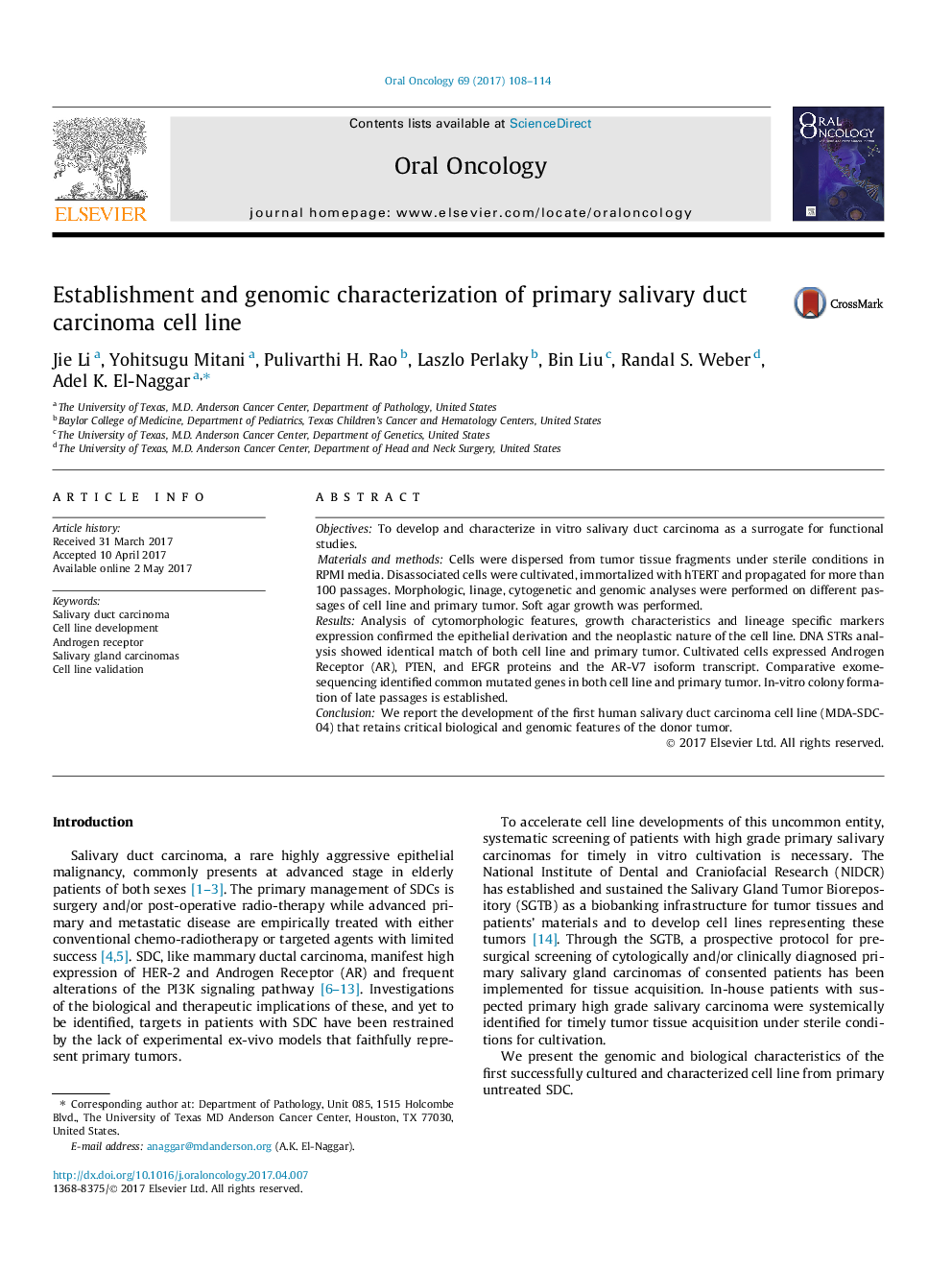| Article ID | Journal | Published Year | Pages | File Type |
|---|---|---|---|---|
| 5642565 | Oral Oncology | 2017 | 7 Pages |
â¢Development of the fully characterized salivary duct carcinoma cell line.â¢This cell line retains considerable molecular and genomic characteristics of parent tumor.â¢The cell line provides valuable in vitro resource for investigating SDC.
ObjectivesTo develop and characterize in vitro salivary duct carcinoma as a surrogate for functional studies.Materials and methodsCells were dispersed from tumor tissue fragments under sterile conditions in RPMI media. Disassociated cells were cultivated, immortalized with hTERT and propagated for more than 100 passages. Morphologic, linage, cytogenetic and genomic analyses were performed on different passages of cell line and primary tumor. Soft agar growth was performed.ResultsAnalysis of cytomorphologic features, growth characteristics and lineage specific markers expression confirmed the epithelial derivation and the neoplastic nature of the cell line. DNA STRs analysis showed identical match of both cell line and primary tumor. Cultivated cells expressed Androgen Receptor (AR), PTEN, and EFGR proteins and the AR-V7 isoform transcript. Comparative exome-sequencing identified common mutated genes in both cell line and primary tumor. In-vitro colony formation of late passages is established.ConclusionWe report the development of the first human salivary duct carcinoma cell line (MDA-SDC-04) that retains critical biological and genomic features of the donor tumor.
